Sep 30, 2020
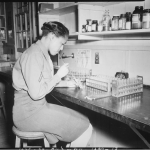
By Katie Acken Lowe Pipette (Noun or verb. /pie-PET/) What does it mean? A pipette is a mechanical instrument used to measure a precise volume of liquid. Once measured, the liquid is then transferred into a tube, beaker or other vessel. There are many different types of pipettes used for specific purposes, such as […]
Sep 30, 2020
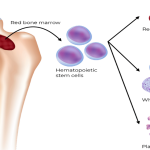
By Sara Lowe Hematopoiesis (Noun. /hee-ma-do-po-EE-sis/.) What does it mean? Hematopoiesis is the process in which a stem cell will develop into any type of new blood cell based on external factors that affect the organism. Stem cells that undergo hematopoiesis are called hematopoietic stem cells. An example that would initiate hematopoiesis would be if […]
Sep 30, 2020
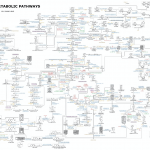
By Regina Fernandez Metabolism (Noun. /muh-TAB-uh-liz-uhm/) What does it mean? Metabolism refers to all the chemical reactions that produce or use energy and occur within living organisms. These processes include converting food into energy, using energy to build up substances, and removing waste products. For example, if you eat fruits, which contain carbohydrates, the cells […]
Sep 29, 2020
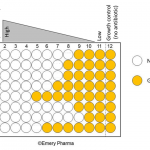
By Jenna Beam Technique Name: Minimum Inhibitory Concentration (MIC) tests. This article will focus on broth dilution tests, however other tests (like the E-test) are also used to determine the MIC. Fun Rating: Difficulty Rating: MIC tests are super quick and simple to set up and pretty easy to interpret, as well. We give this a […]
Sep 25, 2020

By Anastacia Wienecke Before we jump into our discussion of hachimoji DNA, let’s talk a little bit about proteins. Did you know that you are made up of proteins? Right this second, the proteins in your body are helping you digest food, send oxygen from your lungs to your muscles, and build tissues. Your body […]
Sep 24, 2020

By Emma Goldberg Penguins are arguably some of the coolest animals on the planet, and not just because they live in freezing temperatures. Of the 18 different species of penguin around the world, only 6 reside in Antarctica. Some of these penguin species, like the Emperor, Adelie and Rockhoppers, were featured in Happy Feet. And […]
Sep 23, 2020

By Mohamed Nasr Chromosomal Crossover (noun. /kro-mo-SO-muhl KROSS-over/) What does it mean? Chromosomal crossover, also known as “crossing over”, is the process of chromosomes aligning and exchanging portions of their genetic material. The areas in the chromosome that cross over are called chiasmata. This crossover occurs during gamete formation in the prophase of meiosis I. […]
Sep 22, 2020
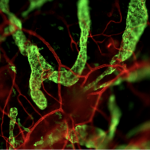
By Natalie Nielsen Technique Name: Immunofluorescence Fun Rating: What is the general purpose? To visually label and detect proteins on and in cells. Why do we use it? Medical diagnostics or scientific research. For example, it can aid in the diagnosis of breast cancer. How does it work? Have you ever wondered how scientists identify specific […]
Sep 18, 2020

By Gabrielle Quickstad Have you ever walked down the aisle of your local department store and taken a look at the labels on food containers or water bottles? Often, you’ll see a label proclaiming that the product is “BPA-free”. So what is BPA, and what does “BPA-free” really mean? BPA, or bisphenol A, is a […]
Sep 17, 2020
By Peter Buttery Have you ever wondered how one small pill can relieve a headache or cure a disease? The answer is not magic, its pharmaceutical chemistry! Most medicinal drugs contain chemical substances that cause your body to undergo a physiological change to fix or otherwise alleviate a problem in your body that was causing […]
Sep 16, 2020

By Alan Curtis Hypothesis Plural: hypotheses (singular noun. /hi-POTH-eh-sis/) (plural noun. /hi-POTH-eh-seas/) What does it mean? A statement that is one possible way of explaining an observation with varying amounts of evidence. In science, hypotheses are important because they serve as a starting point for additional study.A hypothesis may be right or wrong but most importantly, […]
Sep 16, 2020
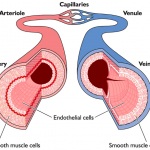
By Madison Williams Endothelium (noun. /en-do-THEE-lee-uhm) What does it mean? The endothelium is a single layer of cells that makes up the inner layer of our blood vessels (arteries, veins, and capillaries). The cells in this layer are referred to as “endothelial cells.” These cells are important parts of the cardiovascular system–the system that includes […]
Sep 15, 2020

By Devina Thiono Technique Name: Enzyme-Linked Immunosorbent Assay (ELISA) Fun Rating: Difficulty rating: (high focus and concentration needed to make sure you know which sample goes where!) What is the general purpose? ELISA is a tool that can be used to identify the presence of antibodies or antigens in a patient’s sample. An antigen is a […]
Sep 10, 2020
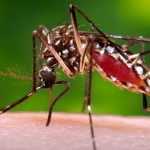
By Riya Gohil You probably think mosquitoes are a nuisance and wish they didn’t exist, but is wiping out whole mosquito populations really a good idea? Earlier this summer, Oxitec, a biotech company, received approval from the EPA to release genetically modified mosquitoes in Florida and Texas. Oxitec aims to reduce disease carrying mosquitoes that cause […]
Sep 10, 2020

By Whitney Bell The United States has 62 National Parks. Some of the most famous and most visited include Great Smoky Mountains, Grand Canyon, Yosemite, and Zion National Parks. Yellowstone National Park, created by President Ulysses Grant in 1872, was the country’s very first national park. National Parks are popular tourist destinations because of their […]
Sep 09, 2020
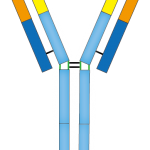
By Taylor Tibbs Antibody What does it mean? Antibodies are proteins produced by immune cells to target foreign elements or pathogens like viruses, bacteria, and fungi, to ultimately eliminate them from the body.The body produces many unique antibodies specific to things that can make you sick. Antibodies can neutralize toxins directly or act like flags […]
Sep 09, 2020
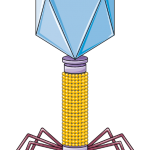
By Nicole Gadda Bacteriophage (Noun. /bak-TEE-ree-o-faj/) A bacteriophage is a virus that only infects bacteria. Like all viruses, they’re not living organisms and need a host to survive. Scientists estimate that there are over 1031 individual bacteriophages on Earth, meaning they outnumber all living organisms combined! How do I use it in a sentence: “Dr. […]
Sep 08, 2020

By Alec Chaves Technique Name: Radioactive Tracing in Metabolic Research Danger Rating: As the name suggests, this technique requires the scientist to handle radioactive materials such as tridium and 14-carbon, and if they do not wear protective equipment (gloves, eyewear, lab coat) and/or use unsafe lab practices, they could be accidentally exposed to the radiation which […]
Sep 03, 2020

By Zoe Terwilliger Have you ever seen a cat perform some crazy maneuvers or sit in a weird position and wondered, “How do they do that”? Why cats do some of the things they do will always be a mystery to us, but the secret to a cats’ flexibility is all in their anatomy. Like […]
Sep 02, 2020
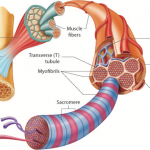
By Zoe Terwilliger Parenchyma (noun. /puh-RENK-uh-ma or /PAIR-en-kahym-a/) What does it mean? Organs can be made of several parts–some parts perform the primary function of the whole organ, while other parts are only supportive. The part of an organ that performs the primary function of that tissue is known as the parenchyma. Take a muscle […]
Sep 01, 2020
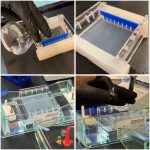
Welcome to our first installment of “Technique Tuesdays”! With these posts about methods and tools, we hope to give you a window into what day-to-day life is like working in science. ——————————————————————————————————————————- By Anna Wheless Technique Name: Gel Electrophoresis Fun Rating: What is the general purpose? Gel electrophoresis separates charged molecules based on their sizes. Why […]




















